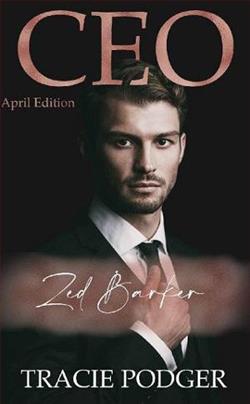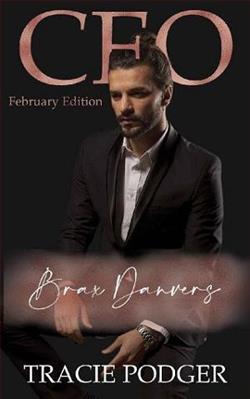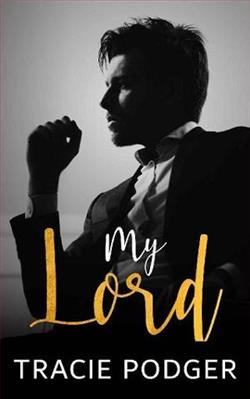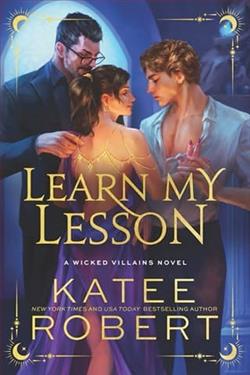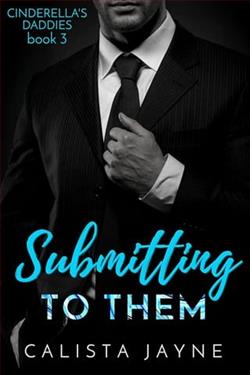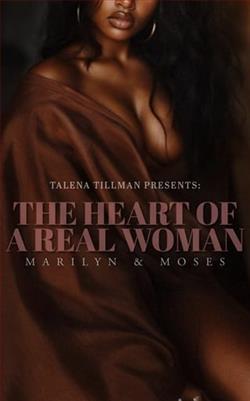Page 19 of Badlands
“Um, is everything all right?” Nora asked in English.
The woman held her sides. “You speak bad Navajo,” she said.
“I’m sorry,” said Nora, flustered.
“Where did you learn to talk so badly?”
“I took some courses in Santa Fe.”
More cackling. “Say something else!”
Nora was taken aback. “You mean, in Navajo?”
The woman nodded.
“Um.” She delved into her small bag of memorized phrases. “Háázhó’ógo bee ádíní.”Please speak more slowly.
This set the woman into fresh cackles of laughter. Nora realized she had no teeth.
At this, Corrie rolled down the passenger window. “What’s going on?” she asked in a low voice.
“My Navajo is being made fun of.”
“You were speaking Navajo? It sounded like you were choking on food.”
Nora suppressed her irritation. The old lady had now leaned her shotgun against the side of the hogan and was waving for them to come over.
Nora called out, “Ahéhee’ shimasani.”Thank you,Grandmother.
At a nod, Corrie got out and followed Nora to the old woman. She went inside and gestured for them to follow.
The interior of the trailer was spotlessly clean and almost empty, save for a large open tub brimful of water, a Coleman camping stove running off a bottle of propane, two wooden benches alongside a crude wooden table, and a wood stove, thankfully not going.
“Welcome,” said the old lady in good English. “Do you want coffee?”
“Yes, please,” said Nora, and Corrie seconded it. “My name is Nora Kelly, and this is my friend Corrie Swanson.”
The old lady bowed her head in acknowledgment but did not offer her own name. She turned the heat on under a tin coffee pot. She pointed to it. “Gohwééh,” she said. “Coffee.”
“Gohwééh,” Nora repeated.
The woman’s face wrinkled up in amusement again. She went to a cupboard, took out three enameled tin cups, and placed them on the table, along with a jar of Cremora and another of sugar. She eased herself down while the coffee heated.
A silence fell. Nora had already spent enough time with Navajo people to know that silence was common, and not to be treated as something that needed to be filled with trivial conversation.Indeed, it was often a token of respect. She took a moment to study the woman. It was hard to tell how old she was. A lifetime in strong sun had produced a face that was deeply wrinkled, almost more than she’d imagined possible. Into this face were set two alert eyes like black marbles, a pronounced chin, broad cheekbones, and a sweep of gray hair tied back in a bun with a blue silk ribbon. She was wearing traditional dress: a purple velveteen blouse with a squash blossom necklace, turquoise earrings, a woven cotton belt, and a long orange calico dress—all very old-style. It amazed Nora that she took the time and effort to dress like that when nobody would see her, and especially in the heat. It said a lot about her sense of self-respect and dignity.
The coffee warmed, and the woman rose and filled their cups. Into her own she heaped several teaspoons of sugar and at least four or five of Cremora. Nora declined both, but Corrie avidly heaped Cremora and sugar into her cup.
Nora took a sip and smiled, even though it was awful—it must have been boiling for days on the stove. She sensed it was finally time to speak. “Did you see all the cars and RVs going past your place last week?” she asked.
“Yes.”
“That was a movie crew,” said Nora. “They’re shooting a movie calledSteele, a Western, in the badlands.”
“Those were some fancy RVs,” the woman said, with another toothless smile.
“They found something out there. Human remains.”
At this the woman’s face froze, the mirth turning to unease. She said nothing. Nora knew that Navajos were extremely uncomfortable talking about the dead.








